A world without Tracie Thoms would be devastating.
Last active 2 hours ago
Don't wanna be here? Send us removal request.
Text

Horton Plaza, San Diego, a surrealist jumble of multileveled styles.
It is significant to geek culture as it’s multileveled architecture inspired many sci-fi worlds. Part of the reason is that it was so influential to the visual arts is that in the 1980s, it was adjacent to the San Diego Comics Convention (as one of my many displays of old orneriness, I have trouble calling this event “Comi-Con,” just as I cannot call Star Wars [1977] “A New Hope”).

788 notes
·
View notes
Text

Delighted to have found this alignment chart I made one year ago today. I stand by my choices.
54 notes
·
View notes
Text

hey netizens! i'm not sure how many people are aware, but youtube's been slowly rolling out a new anti-adblock policy that can't be bypassed with the usual software like uBlock Origin and Pi-Hole out of the gate
BUT, if you're a uBlock Origin user (or use an adblocker with a similar cosmetics modifier), you can add these commands in the uBlock dashboard (under My Filters) to get rid of it!
youtube.com##+js(set, yt.config_.openPopupConfig.supportedPopups.adBlockMessageViewModel, false) youtube.com##+js(set, Object.prototype.adBlocksFound, 0) youtube.com##+js(set, ytplayer.config.args.raw_player_response.adPlacements, []) youtube.com##+js(set, Object.prototype.hasAllowedInstreamAd, true)
reblog to help keep the internet less annoying and to tell corporations that try shit like this to go fuck themselves <3
261K notes
·
View notes
Text
I love when 911 reminds us that queers are very much involved with making this show.
Not just the fact of a Henren Begins ep, told through the frame of an Epic Love Story. But the sheer number of choices — all the little details — that only gays would think of. Too damn many to count, and I know I'll pick up on more on rewatch:
Not just dropping in a DADT reference — which any well-meaning straight might do — but starting the ep with Karen's simmering rage. The protective barriers around her broken gay heart, because "they don't let people like us go to space." The fury at your powerlessness against these forces — these people so hellbent on grinding us to dust and eradicating us. No matter how hard you work or how brilliant you are, "people like us" don't get to have our dreams come true. The very queer dynamic of doubling down on your career anyway. How there's a part of you that believes that maybe — maybe I can be smart enough or competent enough or perfect enough and then they'll see. How we will take our own oppression and grind ourselves to dust for them. How all that rage has to go somewhere. The nuances of just that part of their story? Breathtaking.
How of course it was Sally Ride who made baby Karen fall in love with the universe. Sally Ride who so badly wanted to be an astronaut, but they "do not let people like us go to space." Sally Ride who lived and loved in secret, only coming out after her death. (Literally. She orchestrated her own coming out in her obituary.) How even if we don't know — even if we don't have the words and they don't use them — we know who our people are. We always know. Karen knew.
And on a much more fun note: Hen's date-seduction-swagger, the body language, the smirk, the clothes, the everything. A very particular dyke energy, just off the charts.
SO many choices in their sex scene, but that shot of their shoes? Gayest thing I've seen in my gay-ass life. And Crimson and Clover??? I howled and then I died. A queer ass homosexual made that choice, let me tell you.
How we are deprived of so much as queer people, how we don't get to be taught as children and adolescents how to live, how to move through the world, how to be. We have to grow up and figure it all out for ourselves. How there is beauty in this shared experience in our community, a liberation to be found in creating ourselves, building our own families and relationships free from the suffocating confines of the dominant culture. But also so very much grief. The subtle but powerful choice to show how we so often come to ourselves later in life, but told with so much hope and joy. How it took a while — and they had to choose each other over and over again, as they learned to become themselves — but ultimately it was Queer Love that healed and saved Hen and Karen.
I just love everyone who makes this show, but a special shoutout to the queers. And you know what? Hat tip to the straights too. Because they clearly listen and defer to queers in the telling of these stories.
911 said this show is for the gays. I love you 911. ❤🧡💛💚💙💜🖤
371 notes
·
View notes
Photo
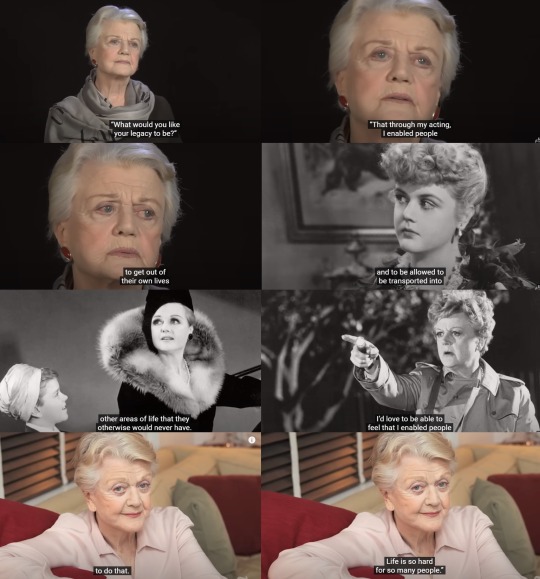
You certaintly did. Goodbye Dame Angela Brigid Lansbury.
157 notes
·
View notes
Text
What do you want out of your time on Tumblr today? 🤔
👉 Take THIS QUIZ to find out 👈
Asking ourselves this simple question can help us learn to be more intentional with our time on social media.
Keep in mind, this isn’t a personality quiz! This is about discovering where you are—right now—not what you are.
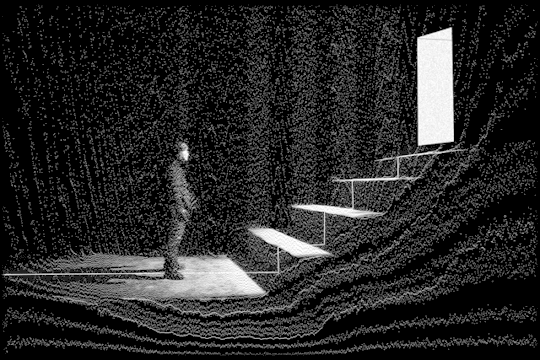
3K notes
·
View notes
Text
Hi!
It's been a long time. Here's a small head-canon about lil' Joanne:
She had a crush on her female swim instructor and while trying to "impress" her by swimming as fast as she could in the lane, Joanne bumped into the wall. Hard.
Part Two: she took a trip to the emergency room, crushed on a nurse who took care of her while she was getting her head stitched and then her parents took Joey to get ice cream. All in all, she had a very pleasant week.
3 notes
·
View notes
Text
scrolling through the jonathan larson tag here on tumblr and being like oh no sweetie PLEASE don’t bring back the rent plagiarism discourse it’s already been disproved again and again and is kinda fucking worthless
84 notes
·
View notes
Photo

Science Fiction Quarterly v02n01 (Nov. 1952)
181 notes
·
View notes
Text
Nomad's Land
Life in the Pink House: Part 3
We recently lost Keith Flint of The Prodigy and in that same week, Jason Jinx of the original STORMrave scene here in NYC. All that has stirred up a new entry to DJ BLMGK’s reflect journal, which we have not updated in a while.
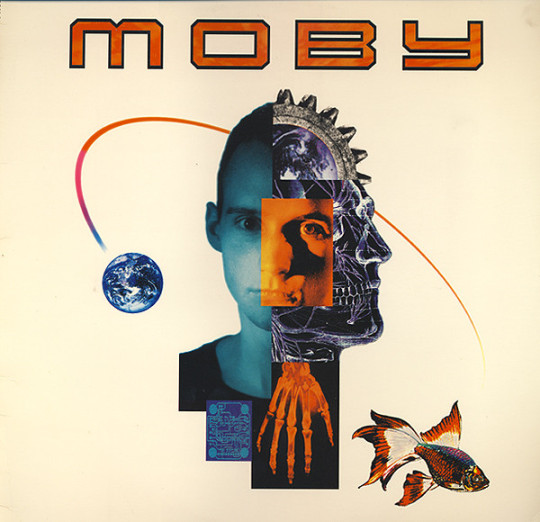
Moby - Moby (Instinct, 1992) was the first (or one of the first) to get his mug on a techno album cover. At this time, I think the only other person or people who didn’t go faceless was perhaps Kevin Saunderson and Paris Grey of Inner City and later, the guys from Bizzare Inc. Moby is not a sanctioned album by Richard M. Hall himself. It was a compilation forcefully put out by his label, Instinct Records (on demand) without his permission.
My family and I were living in California at the time, where techno had already made its way onto the radio stations during business hours. I vividly remember frantically searching many of the record stores in Los Angeles for a full-length, weeks before the album was released. Techno was picking up at a much slower rate on the East Coast and it’s ironic that Moby, a New Yorker, quickly became the face of American techno, not to mention the face of techno on a global scale.
According to various interviews over the years, including his recent auto-biography, Porcelain, he had already moved on from this sound and wanted to instead, put out an album of something more personal. This won’t be possible until 3 years later when he’s eventually signed to Mute Records. But in 1992, instead of releasing new music, he had to tour the current album and the 12" singles (including Go, which granted him his stardom). Moby is primal and full of the raw energy which what I initially identified to be techno at the time. Years later, he will take a fall for the electronic music scene (similarly to The KLF, right before him) for staying true to his personal art and not so quick to follow trends.
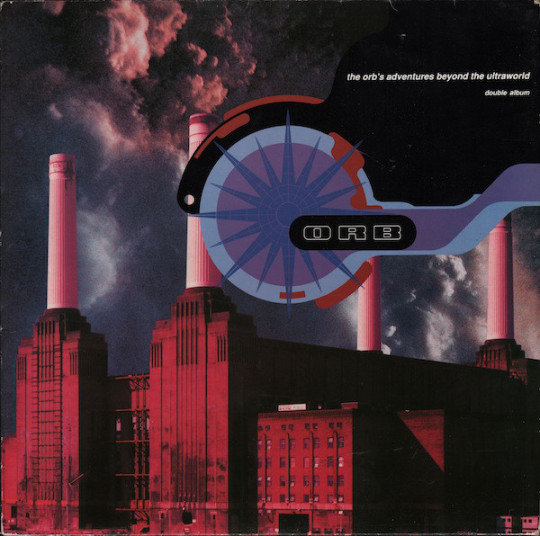
The Orb’s Adventures Beyond the Ultraworld - The Orb (Big Life, 1991) is one of those rare moments when studio mischief, incidental collaborations and influence from numerous concurring music scenes happen all at once. I didn’t hear Little Fluffy Clouds until it was re-released by Island Records in 1993, to coincide with the Live ‘93 album; but I was already very familiar with Orb remixes, so I knew them better as a remix outfit, similarly to Leftfield. Unlike those remixes however, this album was recorded as a collective between several musicians including Killing Joke’s drummer, Youth (who co-wrote Little Fluffy Clouds) and prog-rock guitarist, Steve Hillage. Some of the Orb remixes are sonically identical to the New York house sound, where Jamaican dub music has always played a big factor.
I describe the sound of these remixes as slower paced, kind of like 1980’s Belgium New Beat, but they were calling it ambient house, while various compilations were stamping it as progressive house or trance. It is actually directly associated with the New York City dub-house music style that was slower paced, before Italo-house took over at the turn of the decade. Matter a fact, Dr. Alex Patterson was heavily into Kiss FM (he somehow was able to listen to the New York division of Kiss FM as well, most likely while on tour with Killing Joke as a roadie) when he was recording these tracks, so there was definitely a direct influence from Chicago house and New York garage. The dub music influence found on this masterpiece is the most rewarding feature ABTU has to offer, being the most striking musical element which refers back to the both the NYC club sound and British Punk.
However, ABTU’s real appeal: the ambient compositions. Along with jazz, funk, some rock, disco and soul albums, ambient and soundtrack music was another of my many influences. ABTU’s use of familiar samples from the 1980s and 1970s most iconic recordings, goes on to be a staple on their future releases and unpredictable live performances. Prior to this release, Dr. Alex Patterson performed some of the material with Jimmy Cauty of The KLF, so you will find some similarities with this and KLF’s Chill Out/What Time Is Love?/3 AM Eternal material. Since we’re also talking about album covers, this was one of tDR’s best and iconic, where the design illustration (US version) almost looks like it is indicating a needle over the groove of a vinyl record. This of course, is by accident: the Battersea power station was removed from the front sleeve for the American release.
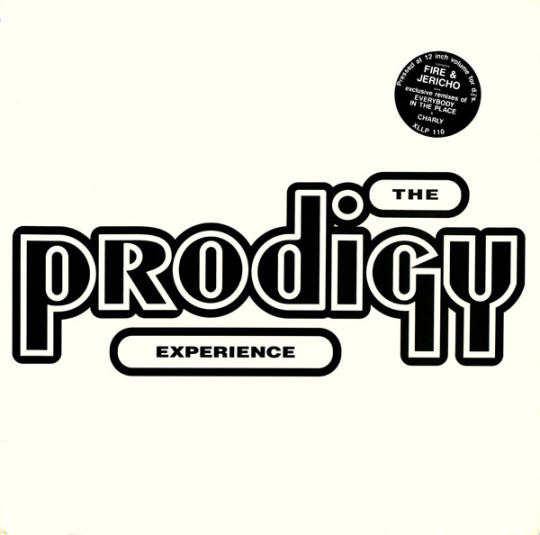
Experience - The Prodigy (XL Records, 1993) were not faceless, but you had to flip the LP cover to see these guys. I’m assuming the strategy for music labels back then was to not spend tons of money on photo shoots, because this music and scene was still relatively new and often a gamble. In 1992, these guys wore baggy pants and looked like how ravers did at this time (whenever journalists did report about the scene). This will change later on, as the English rave scene fades away and stagnantly splits into several different sub-culture movements for the remainder of the 1990s. Instead of following the current musical fads, these guys dig deep for inspiration and will look back at 1970s punk culture for their Fat Of The Land album. Experience is the pinnacle of UK breakbeat (aka UK hardcore) and it never gets enough praise (at the very same stance). Their next album, Music For The Jilted Generation, is even more substantial for its time, while getting even less.
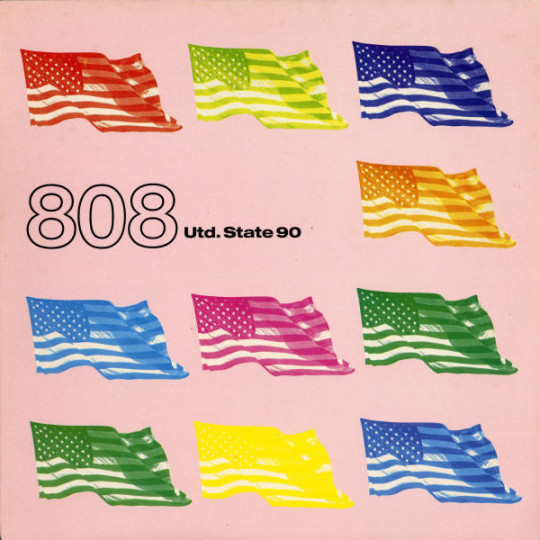
Utd. State 90 - 808 State (Tommy Boy Records, 1990) are to acid house like how The Beatles are to pop music. They need little introduction, due to their seniority. They are veterans and we can thank them for giving us A Guy Called Gerald. Utd. State 90 is not a real album, as the case with Moby’s debut and similar releases at this time. It’s just a compilation. It contains work from their previous album, Ninety and tracks which appears on the Extended Pleasures of Dance EP, some unreleased material and additional US remixes (including an uncredited remix of Pacific State by Frankie Bones and Tommy Musto). It should go without saying, but this is techno at its finest. Pacific State was written with A Guy Called Gerald as an acid house track on Quadrastate, but was remixed into a techno number for this album and Ninety. Just when acid house was about to get redundant, then we had tracks like this, having more of a Detroit techno influence, but channeling deeper into the likes of Miles Davis or Herbie Hancock.
5 notes
·
View notes






























